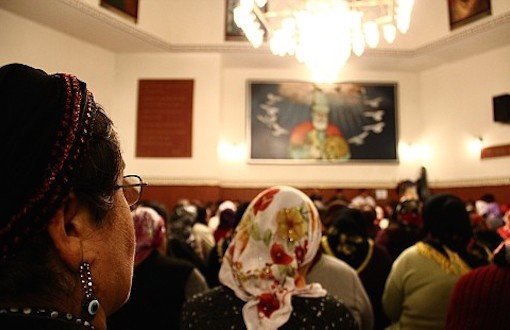The civil war that started in Syria in 2011 has displaced millions of people, left cities in ruins and shattered the social structure. Arab Alawites have been one of the communities that have paid the heaviest price for this destruction. They have been targeted both because of their identity and because they have been identified with the Assad regime. Arabic-speaking Alawites living in Turkey, on the other hand, faced this process not only with anxiety but also with a search for identity, belonging and solidarity.
Hussein* from Latakia, Syria, has felt war and sectarian discrimination to the bone. During the 14-year conflict, he lost both his property and security:
"They raided my house and took my car. My daughter froze and witnessed those horrible moments. This image still haunts me," said Hussain, noting that his Alawite identity turned him into a target during the war.

WITNESSES OF THE SAHEL MASSACRE
Zaynab from Latakia: We just want to live in security and peace
"Being an Alawite means following in the footsteps of Prophet Ali and the Ahl al-Bayt. But we were portrayed as being responsible for what Bashar al-Assad did, when in fact the Assad regime was not only based on Alawites, its supporters included Sunnis as well."
"Being an Alawite means following in the footsteps of Prophet Ali and the Ahl al-Bayt. But we were as if we were responsible for what Bashar al-Assad did, whereas the Assad regime was not only based on Alawites, its supporters included Sunnis as well."
Hussein said that they were not safe and that he and his family spent their days in fear:
"As soon as the sun sets, we stay indoors. It is dangerous to go out on the streets. We are thinking of emigrating, but we don't know where we will go and how we will make a living."
Between identity and invisibility in Turkey: Through the eyes of two women
The developments in Syria are also leaving deep marks on Alawites living in Turkey. Ece, a resident of Mersin, says she initially didn't grasp the seriousness of events when she first heard about them, but her unease grew as she learned the facts:
"Since I was born, I've known myself as a Turkish citizen. My sect is different, but that doesn't change my sense of belonging. Still, we face different treatment because we're Alawites."
Dilayla from Adana describes the loneliness she felt after seeing news on social media:
"This violence gets little media coverage. We feel alone because there's little support. Many people hesitate to speak up. Some feel guilty for staying silent on other issues when they do speak out."
Both women are uncomfortable with Assad's Alawite identity being attributed to an entire community. Dilayla notes these events have both sectarian and political dimensions:
"One person's wrongdoing cannot be blamed on the whole people. Having the same identity with the regime does not mean supporting that regime."

Celebrating Evvel Temmuz in post-earthquake in Hatay
Kilikya River Association: "We're Turkish citizens, we want visibility"
Metin Solunoğlu, board member of Mersin's Kilikya River Association, calls the violence against Alawites in Syria "inhumane":
"Innocent people are being killed there. There's no justifying this brutality. In this process where sectarian and political motives combine, Alawites are seen as godless. This mindset is terrible. Those people have lives, children, mothers."
Solunoğlu says Alawites in Turkey also feel threatened, but maintain trust in the state:
"How can we feel at ease when terrorist groups in Syria call for killing Alawites? But we live in the Turkish Republic, we're loyal to our flag, we trust our state."
He notes their association holds press statements at borders, organizes marches, and collects aid, but says state and media support remains insufficient:
"The state shouldn't stay silent about this oppression. These people are starving, children can't go to school or even get soup. Just because Assad committed atrocities doesn't justify other atrocities. We condemn oppression, whoever commits it."

Alawite massacres in Syria: Police block protest outside Syrian consulate in İstanbul
They want to exist with their identities
Alawites trying to survive physically and identity-wise under Syria's war shadow face similar invisibility in Turkey. Sectarian prejudices, political labeling, and lack of media coverage make this community's existence even harder.
The words of Hüseyin, who describes what happened in Syria in front of his daughter's eyes, reveal the extent of this fear. In Turkey, Ece and Dilayla talk about the anxiety, loneliness and misunderstanding they experience when revealing their identities. They all share a common demand: To be visible.
Kilikya River Association officials stress that the state and society must hear this voice. Their actions, aid campaigns, and statements aim to show people they're not alone.
These accounts reveal Alawites want not just to live, but to exist with their identities. They no longer want silence – they want visibility.

Turkey’s Arab Alawites and the Syrian Conflict
(EK/Mİ/DT)


